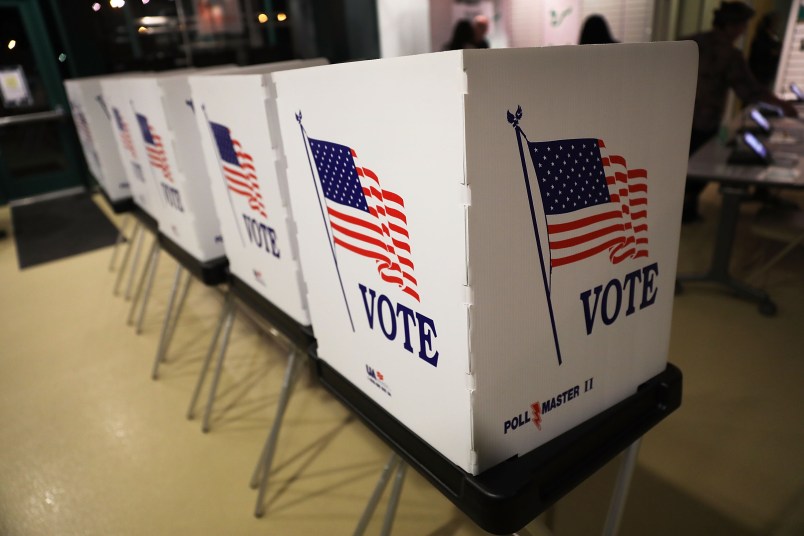After a judge suggested that the Trump administration had provided “incorrect” information about when members of the now disbanded voter fraud commission were appointed, the government told the court Thursday it was standing by the dates it had originally provided.
In a court filing, a government official suggested that the perceived discrepancy was due to the White House releasing press announcements about President Trump’s intent to nominate certain members days before they were actually appointed.
It’s unclear if those press releases were what U.S. District Judge Colleen Kollar-Kotelly was referring to when she told the government on Tuesday that “public sources suggest” that its original representations were “at least partially incorrect.”
The confusion comes in a lawsuit filed in 2017 by a Democratic member of the commission who alleged he was kept in the dark about much of the commission’s work. The Democrat, Maine Secretary of State Matt Dunlap, sued the commission for internal documents and communications from which he was excluded.
So far, Dunlap has been able to receive many of the records he requested, but now he and the administration are still fighting on a select set of documents. Specifically, Kollar-Kotelly has ordered that he be granted access to certain “emails discussing potential Commission members” that the administration so far has withheld in the litigation.
The government asked Kollar-Kotelly to halt her order that it produce the emails so that it could appeal the decision. As she was considering the request, she demanded to see the emails herself in camera — meaning that only she and not the challengers reviewed them.
Her order Tuesday seeking that the government clarify when the commissioners were appointed came after that review, which she said “raised a question about the timeline of appointments to the Commission.”
She pointed specifically to a December 2017 filing from the government that said commissioners Alan King, Hans von Spakovsky and J. Christian Adams were appointed on July 11. The latter two commissioners — far-right activists who push restrictive voter laws — were among the most controversial appointees to the commission. Months before he was appointed, von Spakovsky wrote an email that was passed along to then-Attorney General Jeff Sessions complaining about the plan to put Democrats and “mainstream Republicans” on the panel.
In the court document filed Thursday, which included a declaration from a top White House records manager, the government insisted that King, von Spakovsky and Adams were in fact appointed on July 11.
“I have also reviewed various White House press releases announcing the President’s intent to appoint individuals to the former Commission,” the records manager’s declaration said. “For example, on June 29, 2017, the President announced his intent to appoint Mr. von Spakovsky to the former Commission, and on July 10, 2017, the President announced his intent to appoint Mr. Adams and Mr. King to the former Commission. As I have confirmed with the White House Office of the Executive Clerk, these individuals were not, however, appointed by the President to the former Commission until the dates reflected in the table above.”
Time will tell whether this explanation clears up the confusion that judge had raised in her order Tuesday. It does not, however, explain the role Adams and von Spakovsky were playing in late June 2017, even before von Spakovsky’s nomination was announced, when they were emailing the commission’s vice chair Kris Kobach about collecting data for the committee.
Von Spakovsky and Adams both provided edits on a draft request for certain records that the commissioner planned to use, ostensibly to study voter fraud on the voter rolls.
Read the filing below:







Just more Trump bullshit. See, he simply announced that he was going to appoint them, but he didn’t really appoint them until…it’s not smart to lie to a Federal judge, but they do it anyway.
When caught, never ever admit the truth … to anyone.
Foir some reason the whole dump team thinks they can act with impunity . I really wonder why???
DoJ is simply corrupt.
At least they’ve stopped pretending to be impartial, so there’s that.